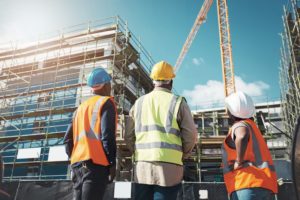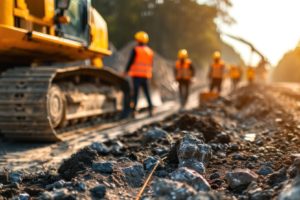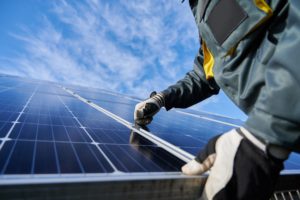Staatsolie Suriname has made an impressive name for itself within the oil and energy industry, thanks to focused leadership and a refreshing attitude to remaining adaptable in a turbulent marketplace, so Endeavour Magazine spoke with Rudolf Elias, Managing Director, to find out what the future holds.
Founded on December 13th 1980, Staatsolie Suriname (Staatsolie) is a state-owned company. While there is no denying that Staatsolie is a commercially run enterprise, there is also an important element of institutional function at play as well, making this a truly versatile and diverse operation. The question is, what are defined as Staatsolie’s main activities?
“Commercially, Staatsolie is involved in the exploration, drilling, production, refining, marketing, sales and transport of crude and refined products, as well as the generation of electricity. In its institutional function, Staatsolie acts on behalf of the State in assessing Suriname’s offshore hydrocarbon potential, attracting qualified international oil companies, negotiating petroleum contracts and monitoring the execution of such contracts.”
Essentially, if there is an activity that is in any way connected to the energy industry in Suriname, you can be assured that Staatsolie is involved and operating with the best interests of the area at its core, but the commercial aspects really are worth noting as well. Selling premium gasoline and diesel, fuel oil, bitumen, electricity and bunker services, both locally and regionally, the company has an impressive impact on a number of industries that have come to rely on Staatsolie. Thanks to its professional demeanor and a deep commitment to clients, industries including manufacturing, agriculture, fishing and power generation have all come depend on Staatsolie, but we wanted to know whether these services might be offered a little wider afield. That’s the question we posed to Rudolf Elias, Managing Director.
“That’s a difficult question to answer at this time in the oil cycle. Of course, we would like to expand into new areas, but the further you go, the more risk you take. With pool prices being what they are right now, we invest in production and exploration as a good return locally outweighs increased risk, for us.”
Don’t you find this approach refreshing? Whereas commercial enterprises throughout the world are normally looking to expand as soon as possible, often at the detriment of service standards, Staatsolie is confident that focusing its attention at a local level at this moment is the key to continued reliability and success. There is such an inherent understanding of the instability of the oil industry that unnecessary risk is simply not an option right now, with serious austerity measures being taken instead:
“The plummeting of world market oil prices in 2014 and 2015 has continued. The price of a barrel of Saramacca Crude even dropped to US$16 in January 2016, the lowest level in years. In order to cushion the effects of the falling international oil prices since 2014, several austerity measures were taken. The first half of 2016 was one of the toughest periods in Staatsolie’s history. Recovery of oil prices, next to the austerity measures taken, created more breathing space in the latter half of 2016. Prospects for this year are positive since the oil prices are recovering, the refinery will be producing more premium products and there will be revenues from the Merian gold mine, in which Staatsolie has a 20% stake.”
It really is enlightening to encounter an organisation that seeks to make no bones about the stress it has been placed under, and the team divulged further:
“Staatsolie is the national oil company. There are no other operators in the local petroleum sector (production and refining). Still, we must consider the challenges for operating in the current international and local business environment. Internationally, these challenges are in terms of the oil prices and competition in attracting partners for offshore exploration. With the diminishing influence of the OPEC on the oil prices, we can expect ongoing volatility. We are very much aware that we must tune our business to the ongoing volatility. That’s why we strive to stay in the lowest cost quartile of oil producers. Also, the precarious economic conditions in Suriname pose a challenge.”
So many other companies might have opted to simply ‘power through’ a period of financial turbulence, but Staatsolie has set itself apart by directly tackling it and the rewards are starting to speak for themselves. Had austerity measures not been taken, this could have been a very different article, but thanks to strong leadership, industry expertise and a savvy approach to investment, Staatsolie is ready for the next chapter.
So, what will keep Staatsolie operating on a higher level than its nearest competitors? The answer is a simple combination of a stellar reputation and an incredibly talented body of staff. Having crafted an enviable reputation in the petroleum sector over the last 36 years, through an in-depth understanding of market conditions and continued supply of high quality products, professionals are, naturally, keen to work for this seemingly future-proofed set-up and that’s not something that Staatsolie will ever take for granted:
“Staatsolie currently employs around 1,000 people. Based on the belief that people are key to the company’s success, Human Resource development is a vital aspect of our business practices. Training for staff is aimed at the development of knowledge and skills in a way that is beneficial for both employer and employee. We promote as much as possible from within, but for certain specialized skills we have to seek candidates outside the company.”
Rudolf was keen to emphasize that employees at Staatsolie should enjoy as much satisfaction from their roles as possible:
“Our staff members are a real valuable part of the company, because of their intellect. In the coming year we would like to do everything to educate our team and to focus on our younger members, as they will be the individuals carrying the company to the next level. We put a lot of our effort into our young intellectuals, by exposing them, amongst others through extensive training and even internships abroad , to expand their horizons. We aim for a sense of purpose when our staff comes to work and in return, we facilitate them so they can return home with a sense of accomplishment every day.
With the future of the company looking to be in fantastically well-equipped hands, we wanted to know what other steps are being taken to keep up with demand for products. A key project looks to have been the extensive refinery expansion project, which was completed in 2015. When we say extensive, we really do mean it as this one project expanded the refining capacity from 7,200 to 15,000 barrels of crude material per stream day. With exciting new developments on the horizon, it was a prudent move two years ago, as the company is in an enviable position now:
“We have a number of future projects that are being tackled right now. Onshore, we have a 141 well-drilling program to boost the crude production back to 17,000 barrels per day, as in 2016, the crude production had declined. We are keen to attract one or two farm-in partners for the exploration in nearshore blocks and in the offshore we are looking to close two Petroleum Sharing Contracts (negotiations ongoing) in 2017.”
There can be no doubting that Staatsolie is ready to move forward and tackle industry turbulence head on, as the infrastructure already in place, completed refinery expansion and dedicated team have combined to create a genuine force to be reckoned with. Rudolf seems keen to lead Staatsolie into the future with a positive mindset as well, as he concluded the interview by stating that,
“By 2020, we will have a company with, more than ever, happy people who have an extraordinary sense of accomplishment. We will grow to a value that is far bigger than it is today, as I strongly believe that in the coming three years, we will find oil offshore, together with our partners. This will change the history of the company and Suriname. We will find it and when we do, we will float 10-20% of shares into the market and enjoy real success.”







